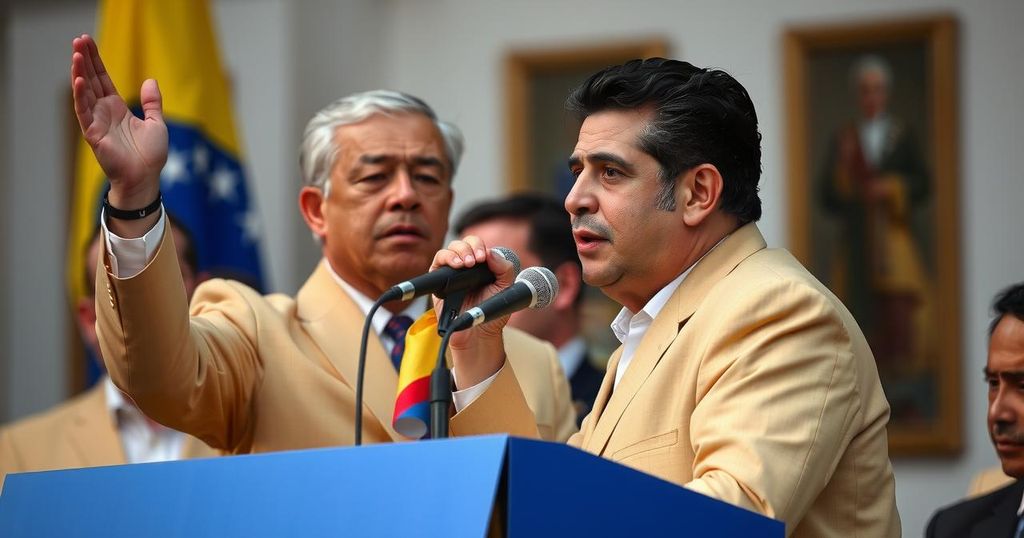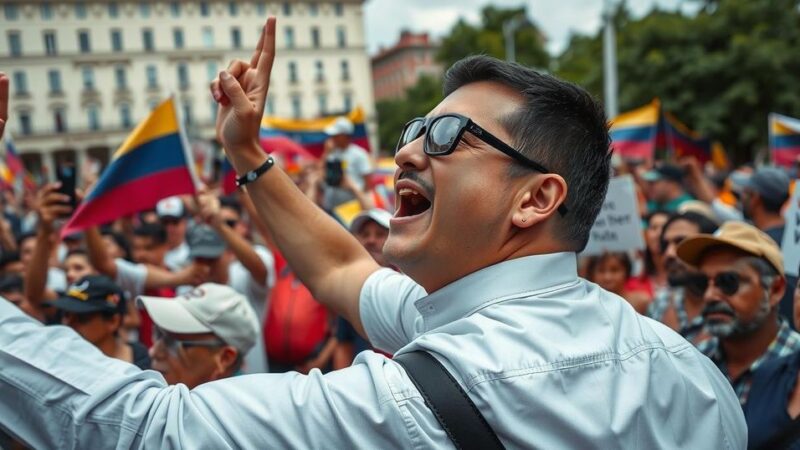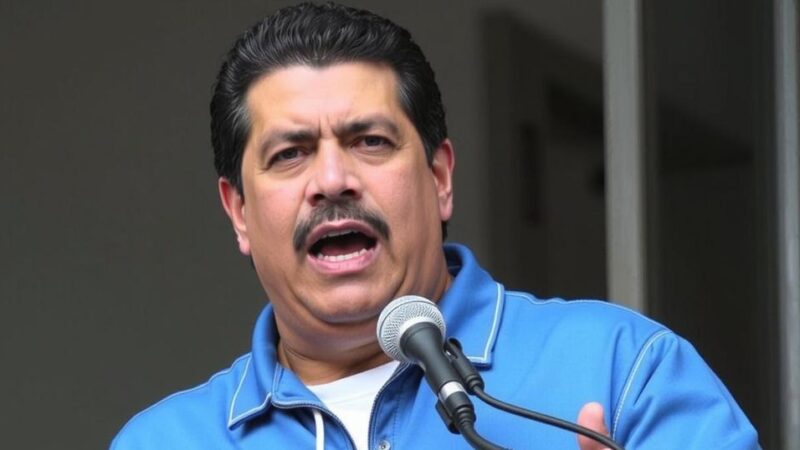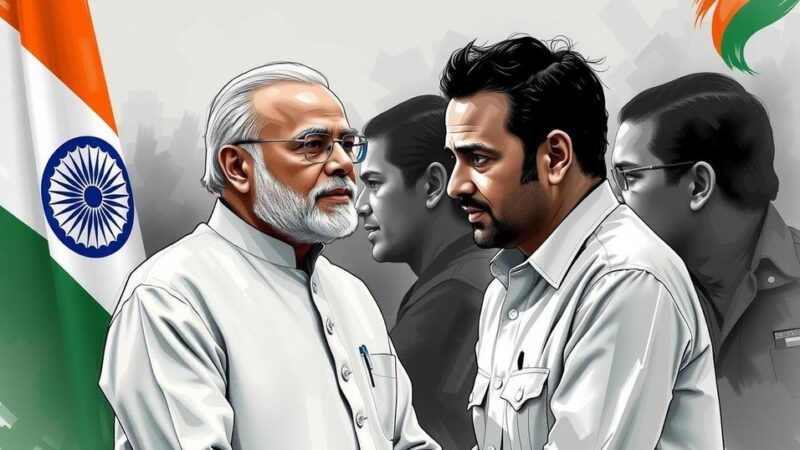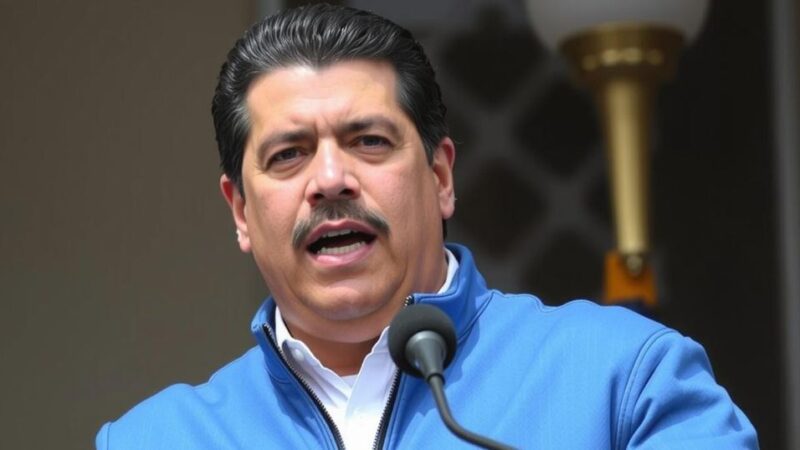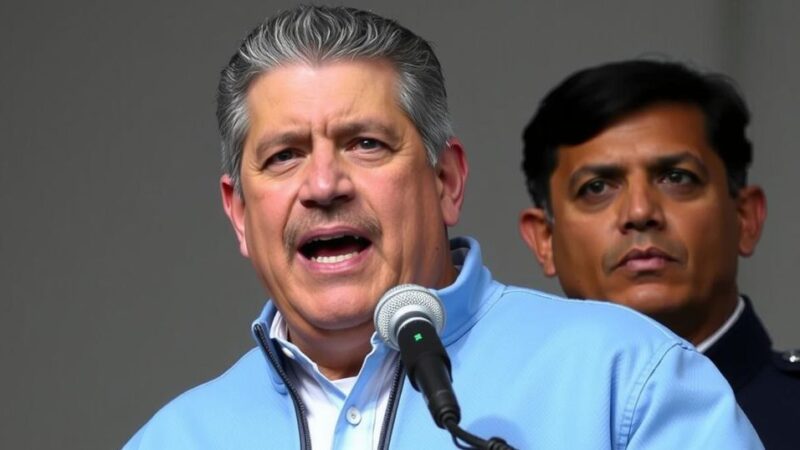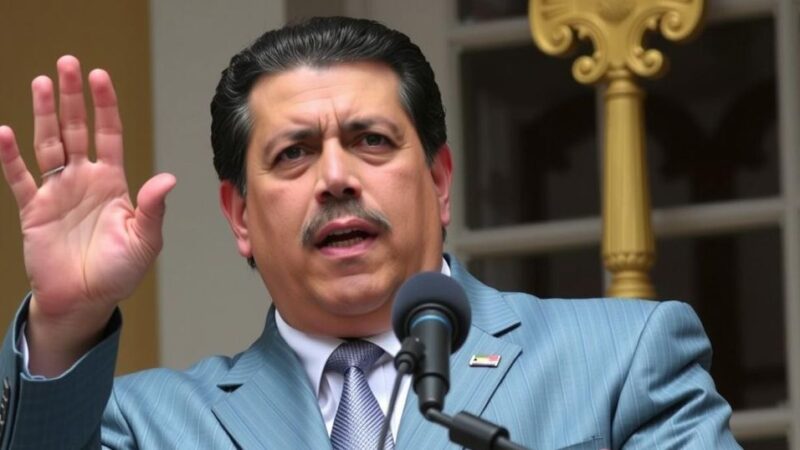Nicolás Maduro was sworn in for a third term as Venezuelan president amidst severe allegations of electoral fraud. His opposition, led by González, claims significant electoral victory, supported by independent evidence. International recognition of González as president-elect is contrasted by Maduro’s authoritarian governance, resulting in heightened tensions.
Venezuelan President Nicolás Maduro has initiated his third term in office, despite grave allegations of electoral fraud. This event follows a controversial election where significant evidence, including voting center receipts analyzed by independents and the opposition, suggests his rival, González, won decisively. Observers, including Carolina Jiménez Sandoval, emphasize that this situation sets a troubling precedent for democracy in Latin America, showcasing a blatant dismissal of the people’s will. In response, the United States and various nations have acknowledged González as president-elect, amid threats against him should he attempt to return to Venezuela. As Maduro’s inauguration unfolded, he fortified security measures by closing borders and deploying military systems, reflecting his regime’s authoritarian tendencies. The international reaction remains cautious, with ongoing discussions about how to engage with Maduro’s regime, particularly in light of previous failed sanctions. The Biden administration had sought a new strategy, only to see it falter as the Maduro government quelled any attempts at fair elections. Regardless of these challenges, the opposition has gained traction, demonstrating resilience and public support against the current regime.
The political climate in Venezuela under Nicolás Maduro has been contentious and fraught with accusations of electoral malpractice. With Maduro entering a third term without credible evidence of electoral support, the legitimacy of his presidency is under scrutiny. The backdrop includes a history of opposition figures being marginalized or barred from participation in elections, alongside international scrutiny from various nations refusing to recognize Maduro’s administration. The U.S. stance has fluctuated from support of opposition leaders to imposing sanctions on the Maduro government, fostering a complex geopolitical situation that continues to evolve amid humanitarian concerns and regional implications.
In summary, Nicolás Maduro’s inauguration amid allegations of fraud highlights a significant challenge to democracy in Venezuela and the broader region. The opposition’s recent gains and international recognition of González as president-elect underscore ongoing resistance to Maduro’s authoritarian rule. The precarious nature of U.S. foreign policy regarding Venezuela complicates efforts to resolve the crisis, revealing the deep-seated tensions and the necessity for diplomatic engagement moving forward. The unfolding political landscape will be pivotal in determining the future stability of Venezuela and its governance.
Original Source: www.washingtonpost.com

